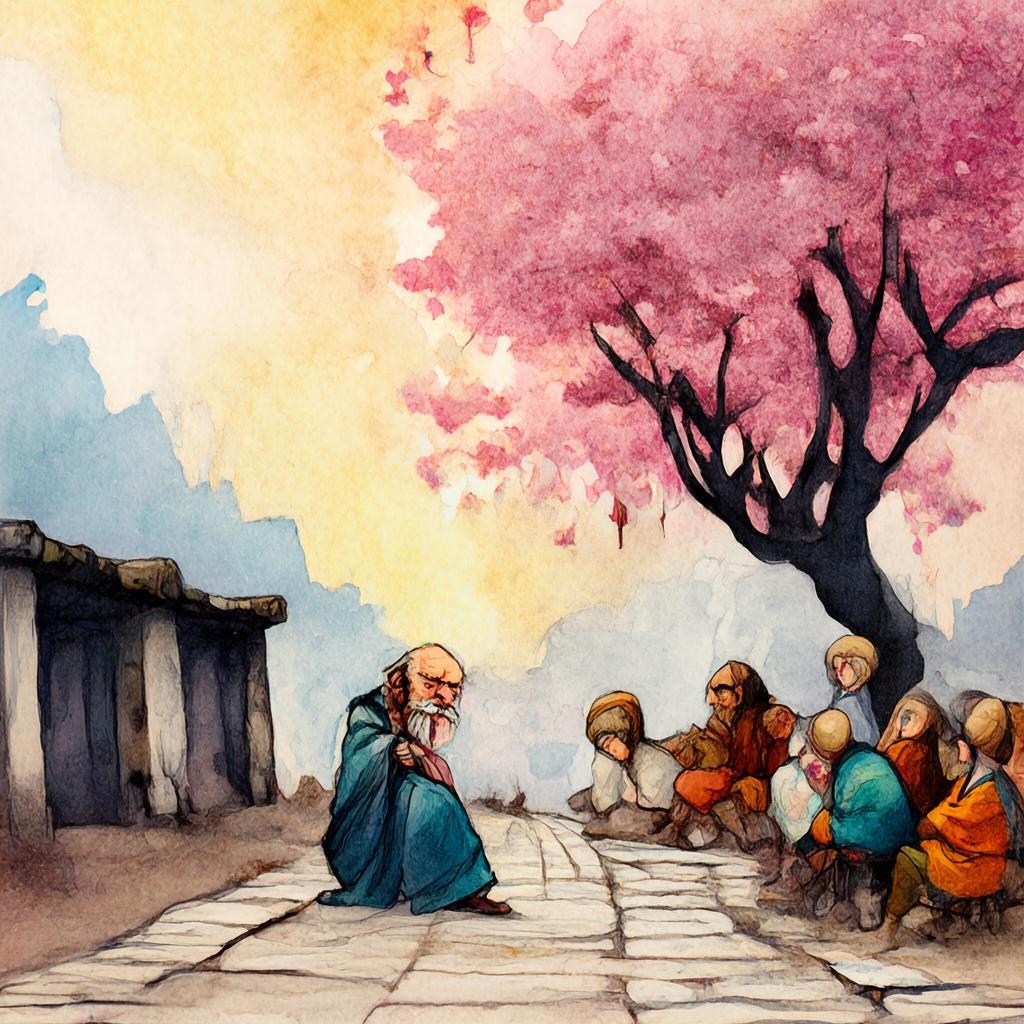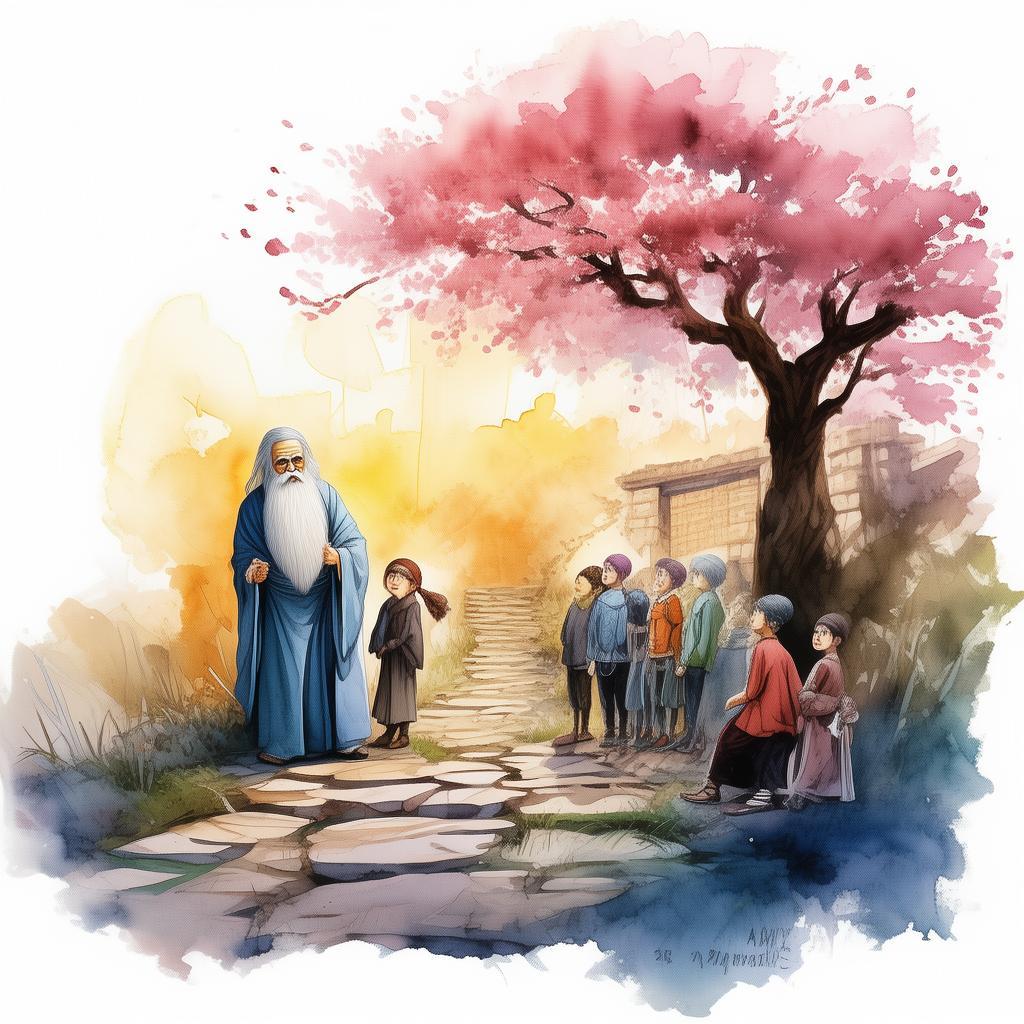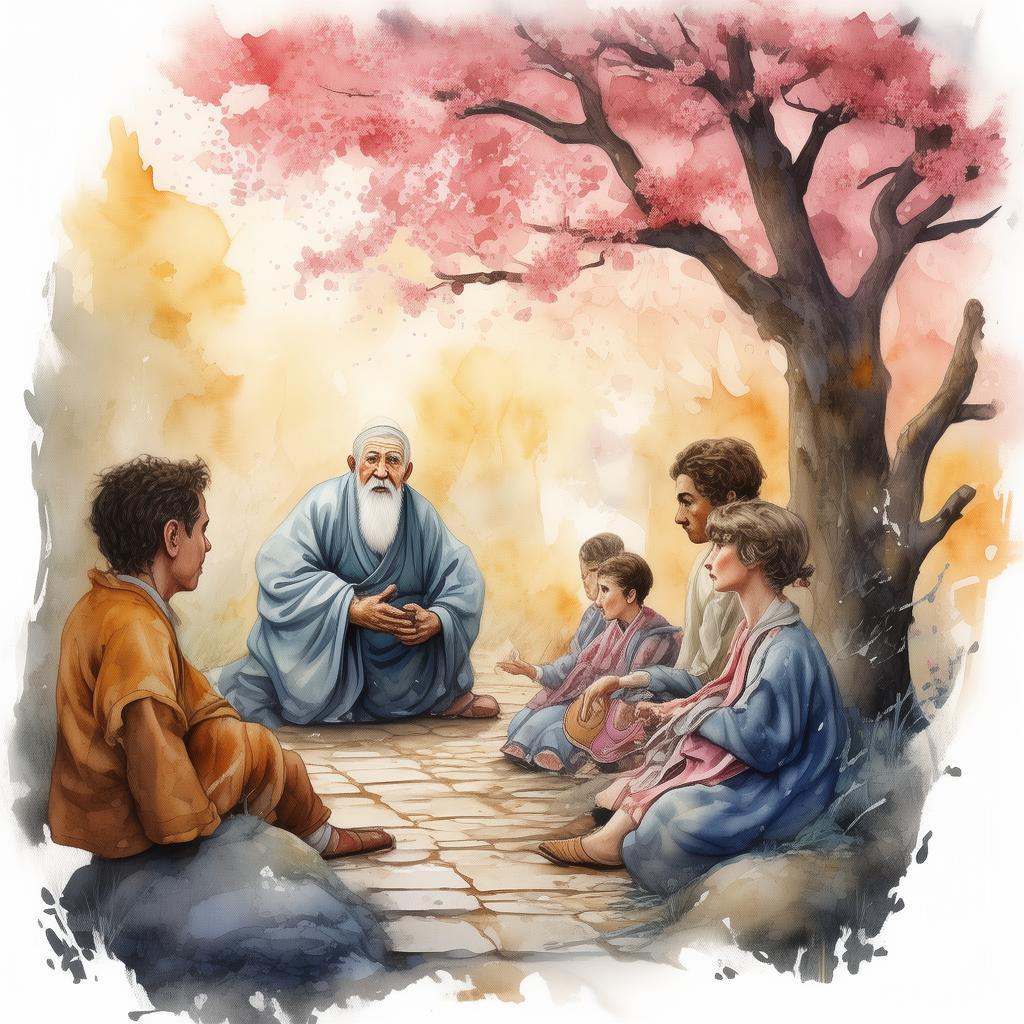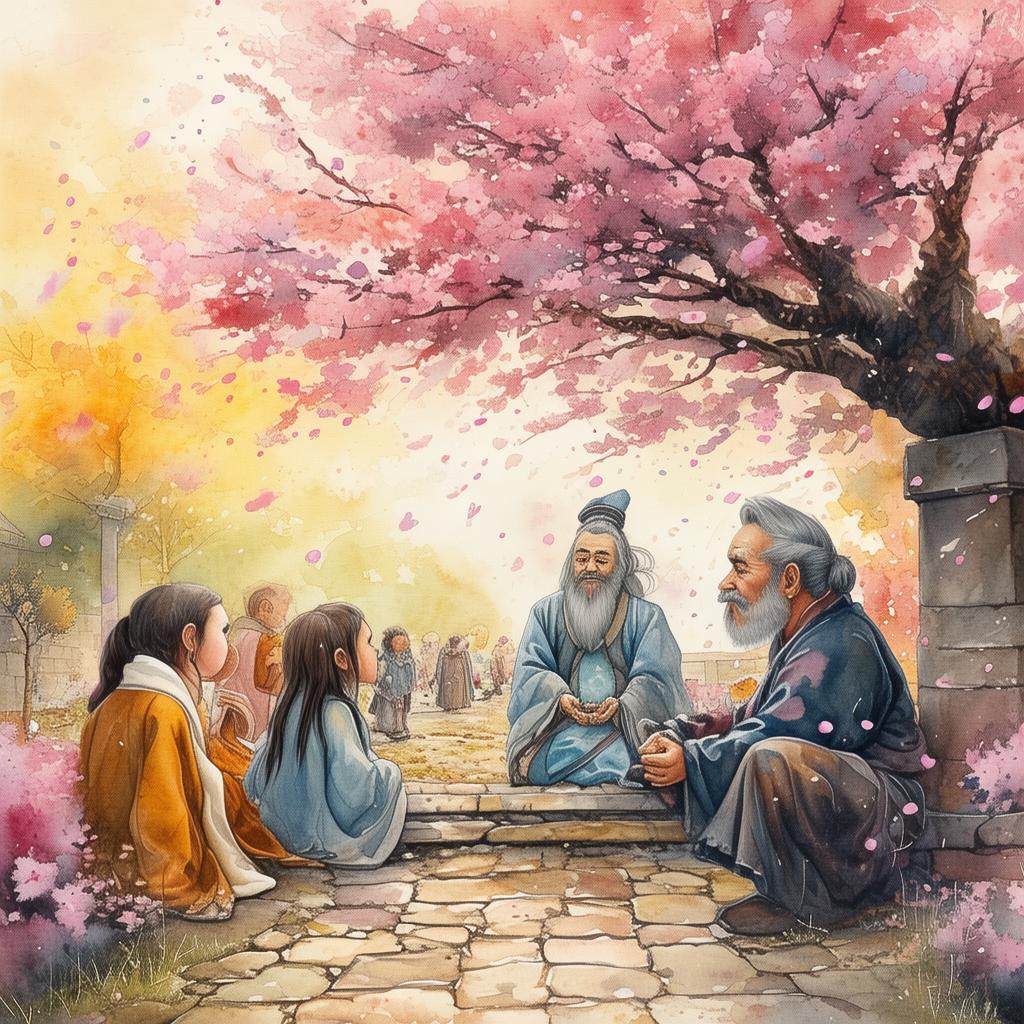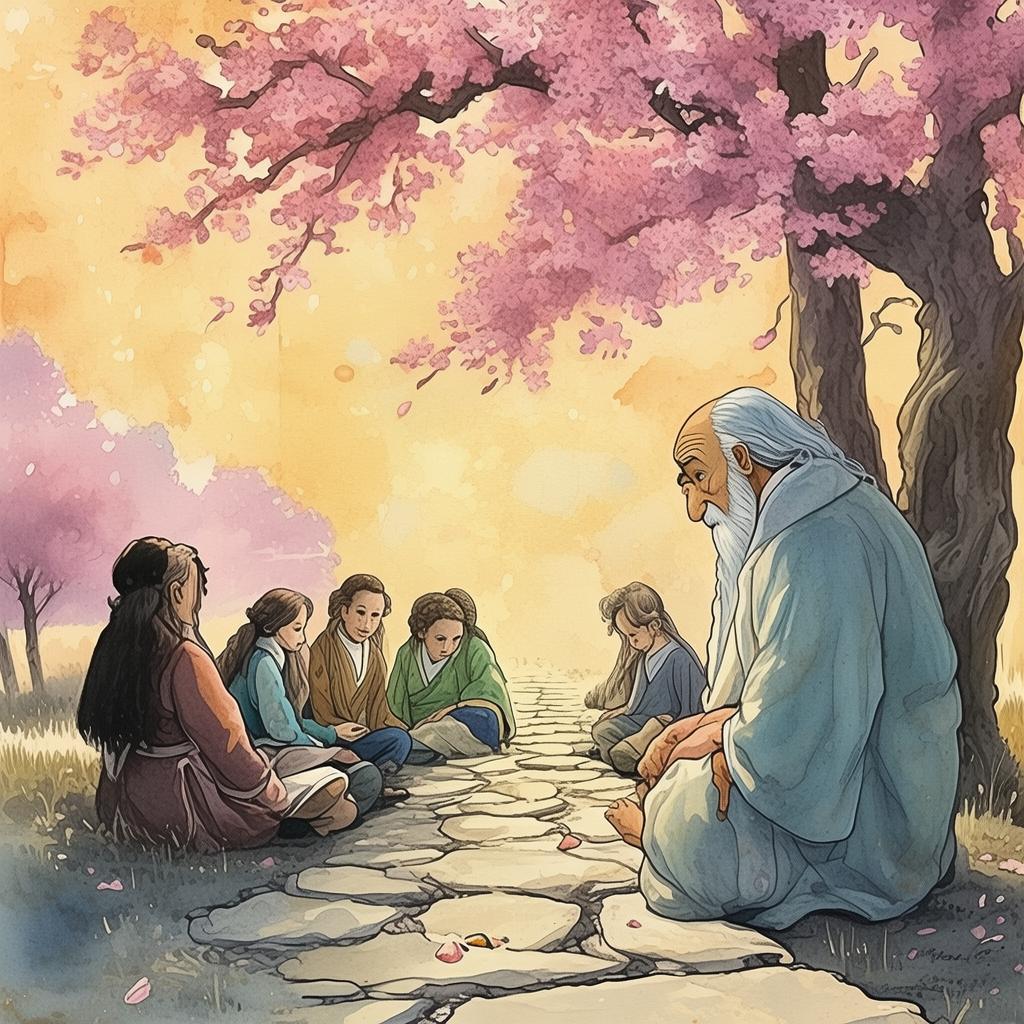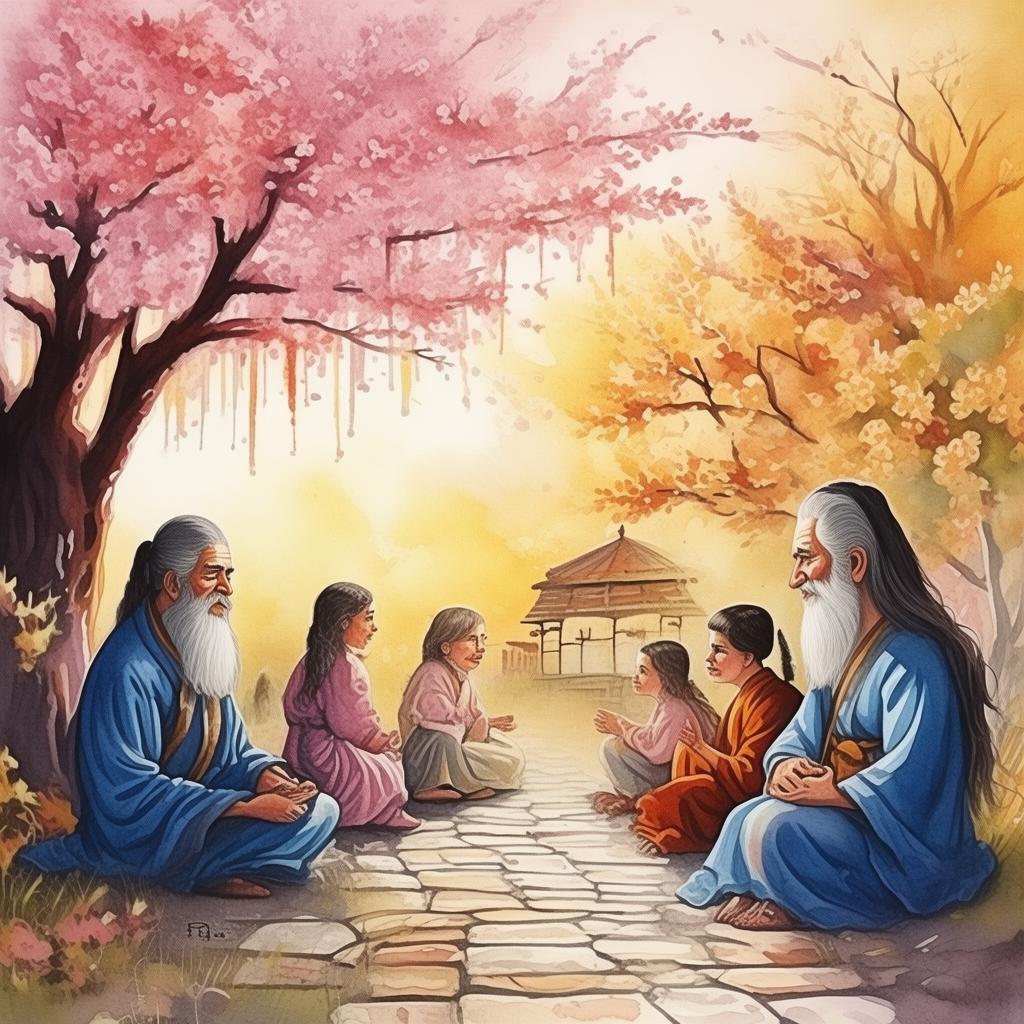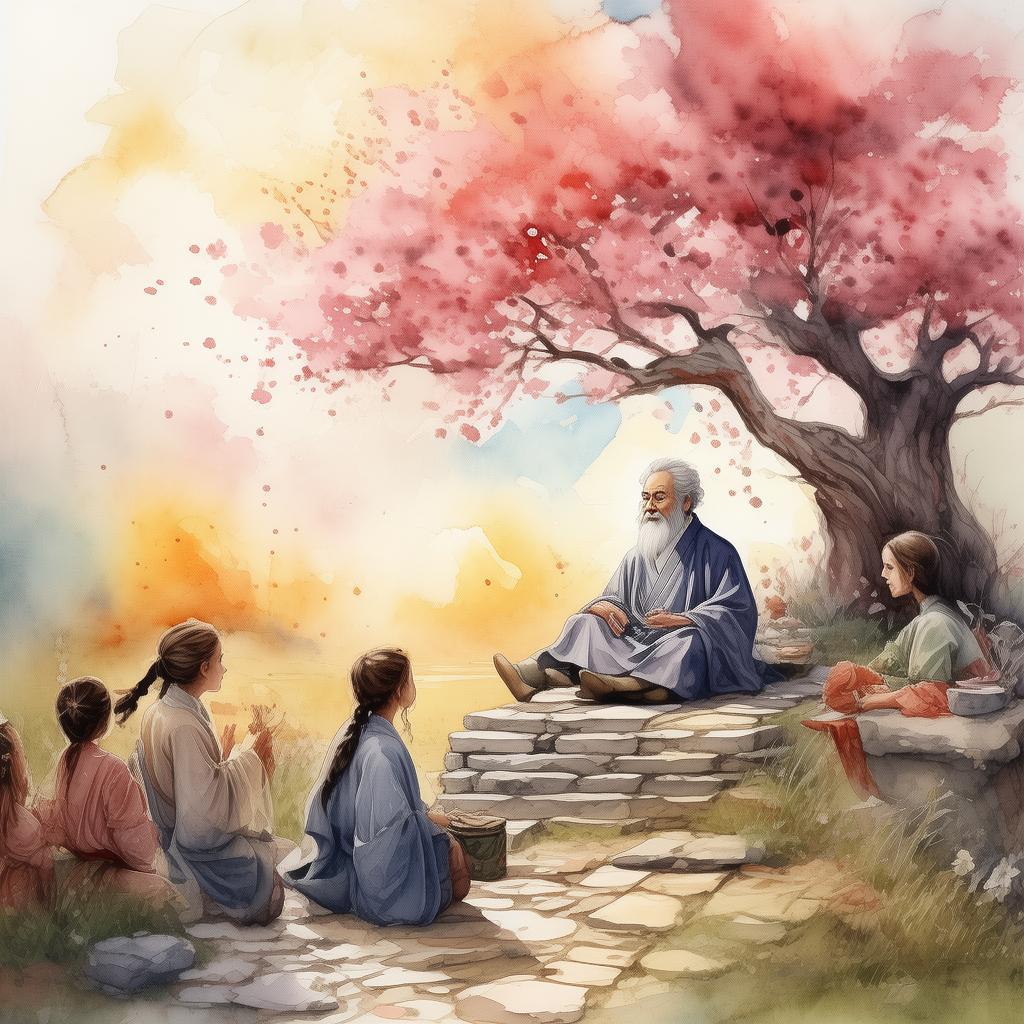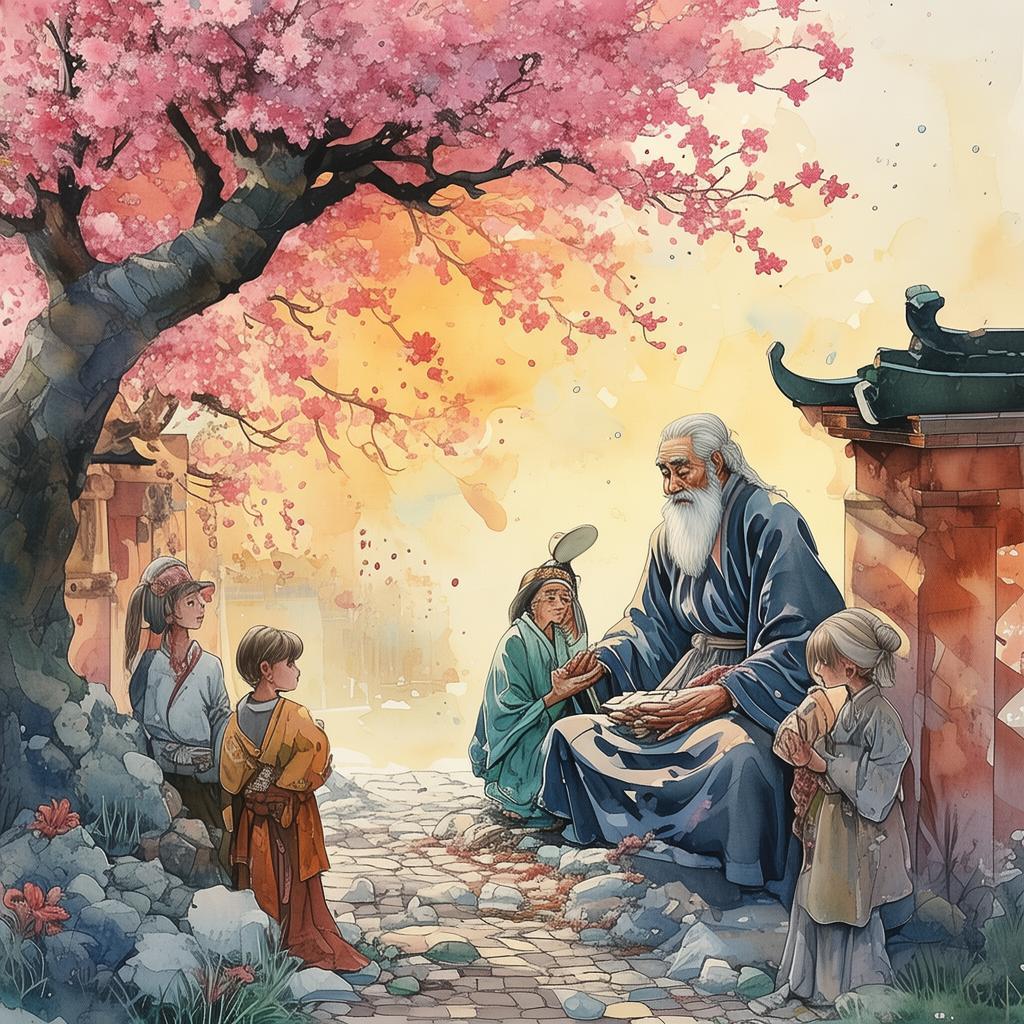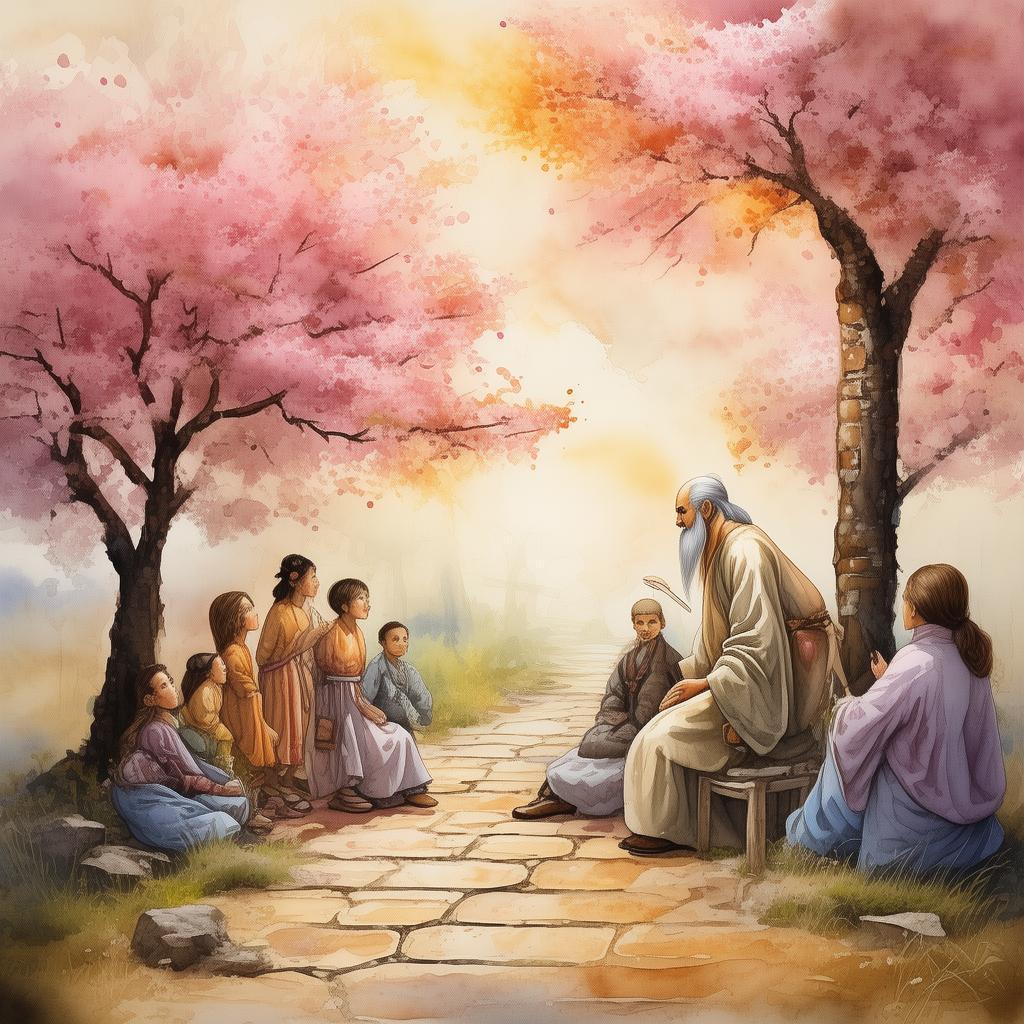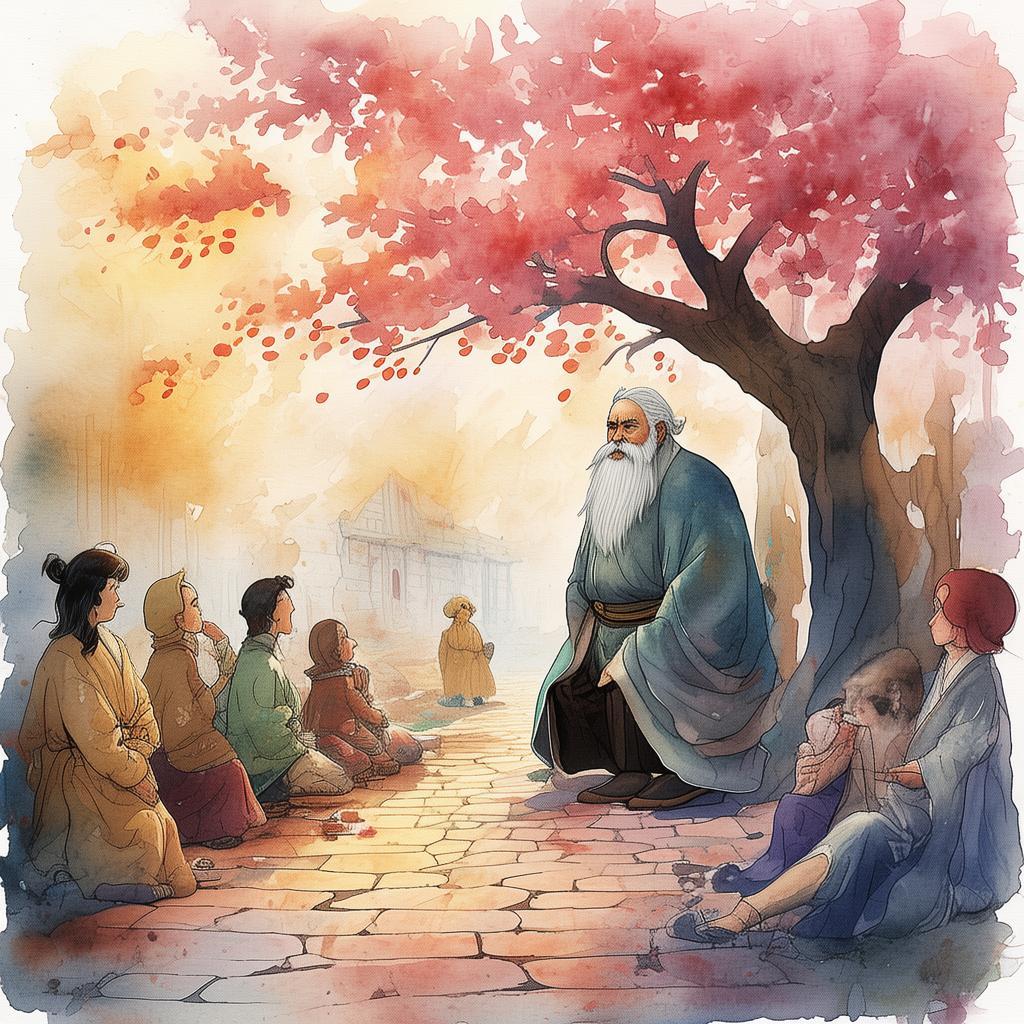The Jovial Jester's Mischievous Plot
In the quaint village of Linghu, nestled between rolling hills and a tranquil river, there lived a renowned character known as The Jovial Jester. His real name was Hua, but to the villagers, he was simply the Jester—a man with a penchant for turning the ordinary into the extraordinary. His laughter was as infectious as his wit, and his tales were filled with joyous idioms that left everyone grinning from ear to ear.
One sunny morning, as the villagers busied themselves with their daily chores, Hua gathered the children around the ancient willow tree. "Today, I have a new tale for you," he announced, his eyes twinkling with mischief. "It involves a mischievous plot, an ancient riddle, and a hidden treasure. Who wishes to hear it?"
The children clapped their hands in excitement, eager to hear the Jester's latest escapade. Hua began his tale, his voice filled with the warmth of a seasoned storyteller.
"In the heart of the village," he began, "there lies an old, forgotten well. It's said that deep within its depths, there lies a treasure beyond imagination. But there's a catch—only those who understand the idioms hidden within the story can claim it."
The children's eyes widened with curiosity. "What idioms?" one of them asked.
"Ah, that's the trick," Hua replied with a sly grin. "To find the treasure, you must unravel the riddle, which is woven into a tale of friendship and deceit."
The tale unfolded, and with each word, the children were drawn deeper into the story. It was about two friends, Li and Wang, who were on a quest to find the hidden treasure. Along the way, they encountered various challenges, each testing their understanding of idioms. The Jester's voice was filled with the rhythm of the language, and the children were captivated.
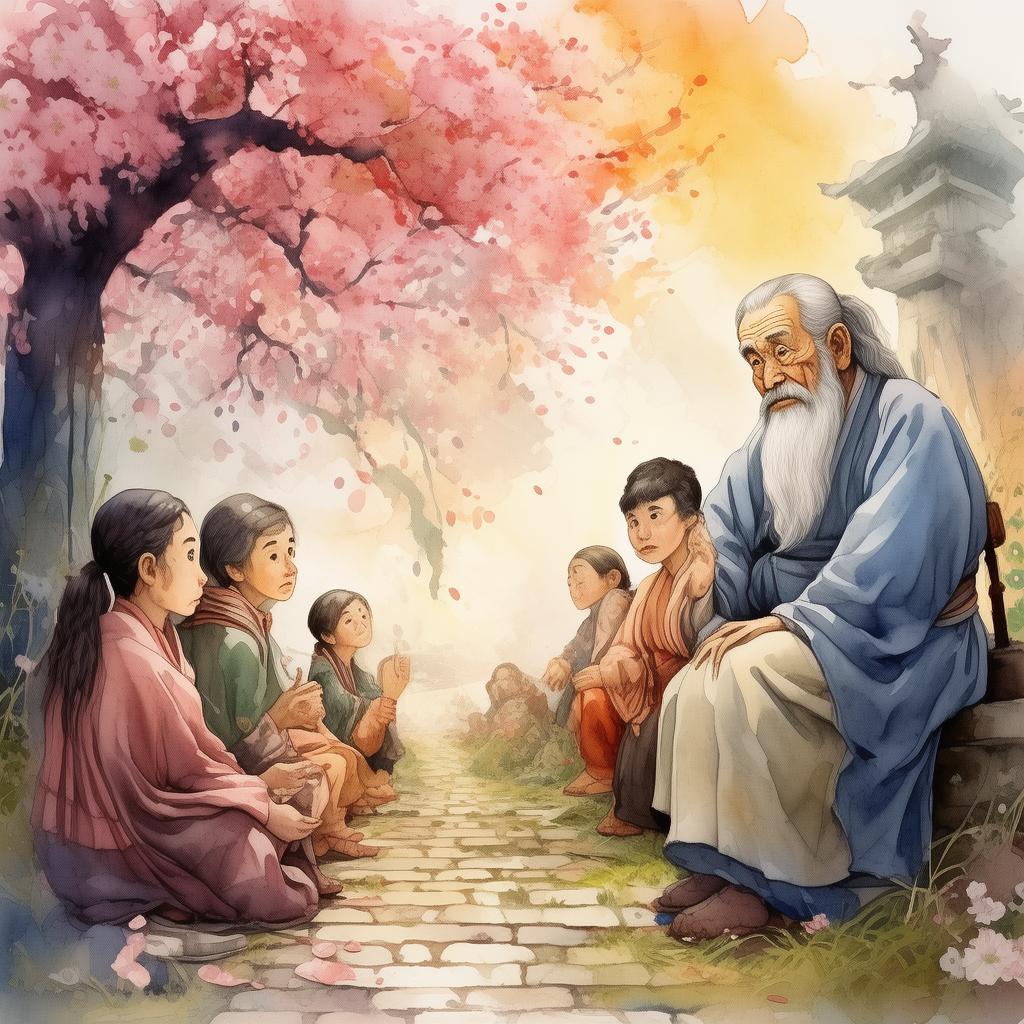
As the story progressed, the children realized that the idioms were not just words but lessons about life. "A friend in need is a friend indeed," Hua would say, and the children would nod in agreement, understanding the importance of loyalty and support.
However, as the tale reached its climax, a twist emerged. It turned out that the true treasure was not gold or jewels, but the bond of friendship that Li and Wang had forged. The Jester paused, allowing the children to reflect on the story's moral.
"Sometimes," he said, "the greatest treasure lies not in the things we seek but in the journey itself. True wealth is found in the relationships we build and the lessons we learn along the way."
The children were silent for a moment, digesting the message. Then, laughter erupted as they realized the Jester had once again woven a tale that was as much about joy as it was about wisdom.
Days turned into weeks, and the children of Linghu shared the tale with their families. They tested each other with riddles, laughing as they learned new idioms. The Jester's mischievous plot had brought the village together, and the spirit of joyous idioms spread like wildfire.
One evening, as the sun dipped below the horizon, casting a golden glow over the village, Hua stood by the ancient willow tree once more. The children gathered around, their eyes filled with anticipation.
"Today," Hua began, "I have a new tale for you. But remember, the true treasure is not in the words, but in the joy and wisdom they bring."
And with that, the Jester's laughter echoed through the village, a reminder that sometimes, the most valuable things in life are the ones we find in the most unexpected places.
✨ Original Statement ✨
All articles published on this website (including but not limited to text, images, videos, and other content) are original or authorized for reposting and are protected by relevant laws. Without the explicit written permission of this website, no individual or organization may copy, modify, repost, or use the content for commercial purposes.
If you need to quote or cooperate, please contact this site for authorization. We reserve the right to pursue legal responsibility for any unauthorized use.
Hereby declared.
